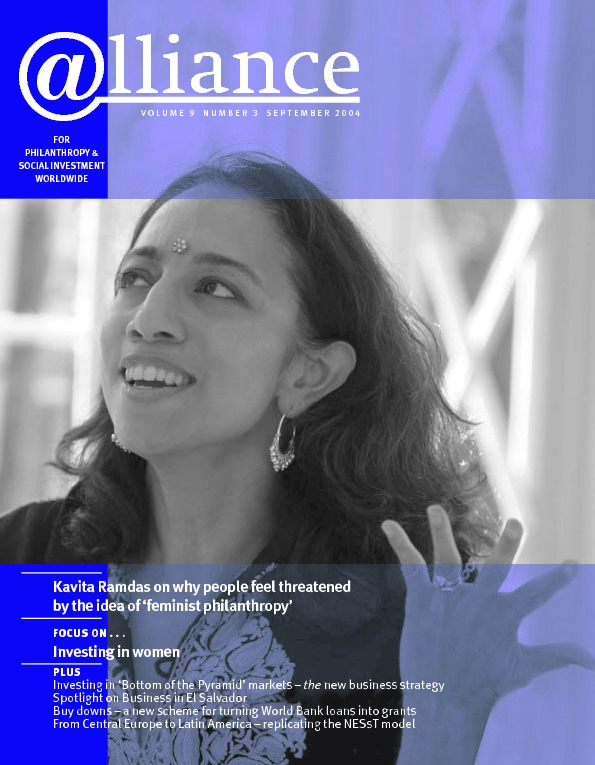Any addition to the literature on a subject as much in its infancy as globalized civic engagement is to be welcomed. And a volume which provides not only seven major case studies of transnational civil action but also a robust policy framework for an understanding of different types of network and organization is especially welcome.
John Clark concentrates his analysis around four principal themes: the organization of transnational action, its governance, the extent to which it works in partnership, and – perhaps the weakest part of the analysis – the focus and culture of the organization.
He provides a useful taxonomy of organizational types, which vary from international civil society organizations to networks and broader social movements. There are crucial issues in relation to the governance of these organizations, in particular their legitimacy, which can derive from well-crafted research or from having an active and engaged membership. Other issues are the extent to which they are accountable and obey ethical codes, and the nature of their leadership. He contrasts strong leadership and participative engagement, which are often mutually exclusive but perhaps most effective when skilfully combined. The partnerships section is one of the more interesting because it deals specifically with collaboration between non-traditional partners, particularly from faith communities and professional associations and think-tanks. While the section on culture does look at the predominance of northern leadership of many of these networks and the difficulties that raises, it is perhaps less well developed than the other sections and there is room for more research here.
What was particularly interesting was the analysis of why such organizations had come into being. Like most elements of this area, they are products both of the changing policy context and of growing capability. Particularly important in relation to the former is the reduction in the pre-eminence of the nation state. As states and markets have coalesced around global institutions, so too has civil society. The means, of course, has been a reduction in the cost of telecommunications and a growth in the use of ICT. While this has the potential to create a divide based on the differential usage of new technology, it has nevertheless enabled most international organizations to function effectively.
The book also contains seven case studies: on international consumer engagement, trade unions and transnationalization, access to HIV/AIDS drugs, the Jubilee 2000 campaign, the anti-globalization movement, the World Social Forum, and the campaign for a ‘Robin Hood Tax’. Each of these is interesting in itself. Some are more descriptive than others – in order to balance the competing objectives of analysis and interest, the framework that Clark sets out in the initial chapter is not always followed through. But this is a minor criticism of what is an otherwise useful analytic method.
The final part of the analysis poses six challenges based on Clark’s understanding of transnational movements. Do they have the right structure? Do they have a visionary leadership which is alert to the many voices in a network? Have they dealt with the North/South issue? Do they make creative use of technology? Do they have both internal and external democratic issues in relation to networks? And do they require greater discipline to maintain their own credentials?
Perhaps one of the most interesting parts of the analysis, which is only touched on and really does require further development, is exactly where the money to fund different forms of transnational organization comes from. Vagueness in regard to this question may help to explain why states and markets continue to question their credibility.
Stuart Etherington is CEO of the UK’s National Council for Voluntary Organisations. He can be contacted at stuart.etherington@ncvo-vol.org.uk
Globalizing Civic Engagement: Civil Society and transnational action
John Clark (ed) Centre for Civil Society/Earthscan £18.95 (paperback)
ISBN 1853839892
To order contact Earthscan
Tel +44 20 7278 0433
Fax +44 20 7278 1142
Email earthinfo@earthscan.co.uk
Website http://www.earthscan.co.uk


Comments (0)